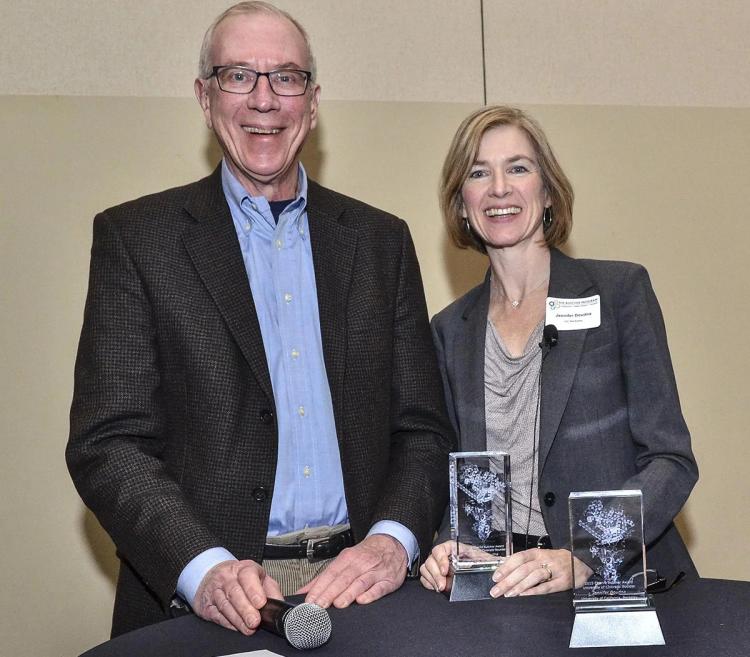Gene-editing pioneer Jennifer Doudna will join an all-star gathering of world leaders in the field for a free public forum, "The Future and Ethics of Genome Editing," May 23 on the University of Colorado Boulder campus.
Doudna worked as a postdoctoral scholar in Nobel Laureate and Distinguished Chemistry Professor Tom Cech's lab at CU Boulder from 1991-94 and earned a Nobel Prize in 2020 for the co-discovery of CRISPR-Cas9, a revolutionary tool capable of banishing genetic diseases, eradicating pests and transforming global agriculture.

Nobel Laureates Tom Cech and Jennifer Doudna.
Now a professor of biochemistry at the University of California, Berkeley, she is the subject of Walter Isaacson's new best-selling book, "The Code Breaker: Jennifer Doudna, Gene Editing, and the Future of the Human Race."
Her keynote on CRISPR will be followed by a broader panel discussion and Q-and-A about gene-editing featuring: Eric Olson, a University of Texas biologist who has used CRISPR to cure Duchenne Muscular Dystrophy in dogs; Özlem Tureci, co-founder of COVID-19 vaccine maker BioNTech; University of Cambridge biologist Jason Chin, who created an entirely new form of bacteria; RNA biologist Tracy Johnson of UCLA; and bioethicist Alta Charo. Nobel Laureate Venki Ramakrishnan will moderate the discussion.
"We are living in extraordinary times in terms of what science is capable of, but of course, when you start to translate this, safety, efficacy and ethical issues arise," said Cech, who was awarded the Nobel Prize in 1989 and organized the forum. "We want to help get the public informed enough that they can weigh in on these issues."
The ABCs of CRISPR
In 2013, Doudna and French microbiologist Emmanuelle Charpentier published a landmark paper showing that a gene-cutting system, CRISPR-Cas9, used naturally by bacteria to kill viruses, could be re-engineered as a tool to edit DNA.
RNA, or ribonucleic acid, served as a guide, homing in on specific letters in the genetic code, while the enzyme Cas9 served as a tiny set of molecular scissors.
Like the search and edit functions on a word processor, this new molecular machine could seek out and find particular letters in a DNA sequence and remove or replace them.
When: 6 PM to 7:30 PM (Doors open at 5:30)
Where: Macky Auditorium
Tickets: Free






